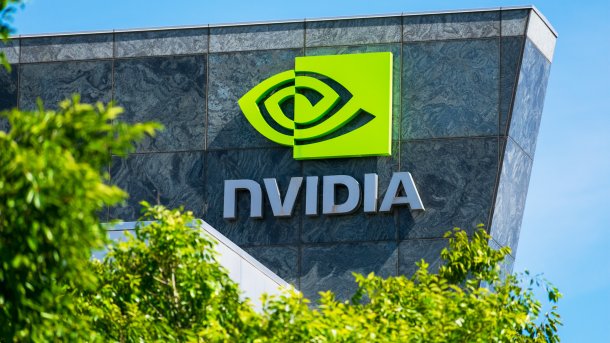Report: Nvidia is working on an AI chip for the Chinese market
Due to US sanctions against Beijing, the US chip company Nvidia is preparing a Chinese version of its new flagship AI chip.

(Image: Michael Vi/Shutterstock.com)
US chip manufacturer Nvidia is working on a version of its new flagship AI chips for the Chinese market that would be compatible with current US export controls. This was reported exclusively by the news agency Reuters on Monday, citing four sources familiar with the matter.
According to the report, a Chinese version of Nvidia's "Blackwell" chip series, which was unveiled in March, will go into series production later this year. According to the report, the new processors combine two silicon squares that are the same size as the company's previous offering. However, they are 30 times faster than their predecessor for some tasks, such as answering chatbots, according to Reuters.
According to the news agency, Nvidia will work with Inspur, one of its most important distribution partners in China, to launch and distribute the chip, provisionally dubbed "B20", in China. A source told Reuters that deliveries are expected to begin in the second quarter of 2025. The US company has yet to make a public announcement.
US sanctions against China
The background to this is the trade war between the US and China. In 2022, the US government tightened export controls on technology for cutting-edge semiconductors. Washington formally banned the export of four technologies required for semiconductor production. This was justified with the protection of goods that are "vital to national security", without China being explicitly named. In fact, the export controls are aimed at preventing breakthroughs in AI and supercomputing by China's military. As a result, the toughest sanctions against the Chinese semiconductor industry to date have largely prevented US and US-affiliated companies from collaborating with Chinese manufacturers in the development of chips with 5nm or higher technology.
Videos by heise
Chinese technology companies have struggled with a far more limited supply of AI chips than their US competitors due to US export restrictions. The most advanced chipsets from manufacturer Nvidia, for example, are out of reach for Chinese companies due to US sanctions. Most recently, there were reports that the Chinese TikTok group ByteDance, which is affected by the US sanctions, is working with Broadcom on the development of an AI chip.
Competitive market
Nvidia has developed three chips specifically for the Chinese market in recent years. However, in order for the US government to allow sales, Nvidia had to curb its AI processors for export to China. As a result, Nvidia is said to have launched another slowed-down version, the H20, which is around half as fast as the H100. Previously, the A800 and H800 were already available with throttled interconnects to circumvent the US sanctions. The USA then issued stricter regulations. The Chinese companies, in turn, do not want the throttled chips from Nvidia. As a result of the US sanctions, China's share of Nvidia's sales fell from 26% at the beginning of 2022 to around 17% at the beginning of this year. In addition, the strict US export controls have helped the Chinese Huawei Group and other Chinese companies to gain a foothold in the domestic market for advanced AI processors.
The version of a chip from Nvidia's Blackwell series for the Chinese market would support the US manufacturer's efforts to fend off challenges from Chinese competitors, writes Reuters. However, the US government is expected to further increase pressure on export controls for semiconductors. According to sources, the US wants the Netherlands and Japan to further restrict the export of chip production equipment to China. The Biden administration is also planning to impose tighter limits on the export of advanced AI models that power generative AI systems such as ChatGPT. Last week, media in the US reported that the US government is considering a measure called the "Foreign Direct Product Rule", which would allow Washington to prevent the sale of a product if it was made with US technology.
(akn)